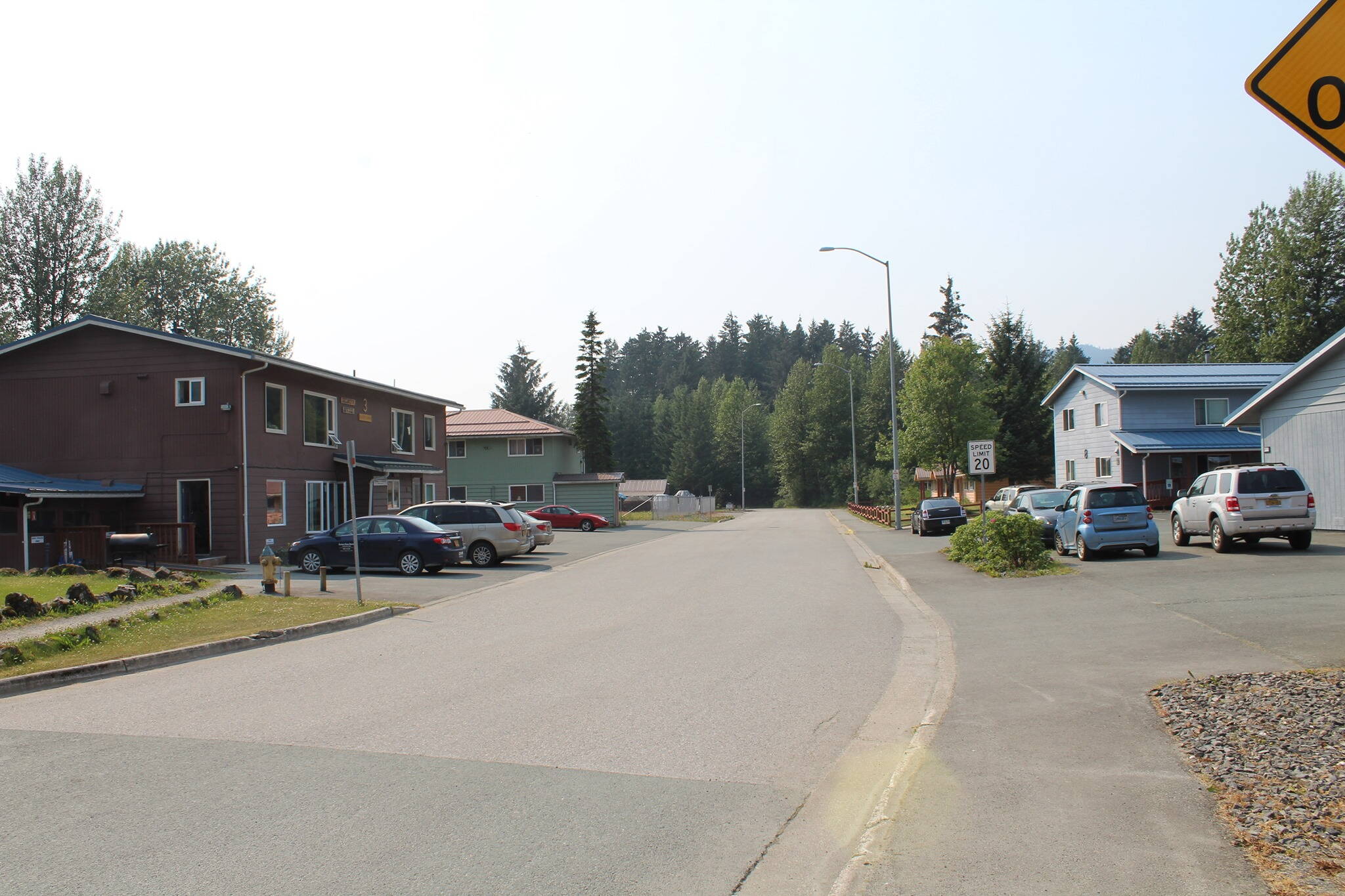A 51-unit housing project for people “with very low incomes, are in recovery from substance use disorders and/or experiencing mental illness” took a large step toward becoming reality as Assembly members on Wednesday night indicated their intent to provide $2 million in general funds to help secure other funding for the $11.5 million project.
The three-story, 19,269-square-foot housing facility was singled out for special attention among 14 proposed community projects seeking a total of about $14.4 million in municipal funding that were evaluated by the Assembly’s Finance Committee as part of the annual budget process. Deputy City Manager Robert Barr said Gastineau Human Services Corp., a private nonprofit which is proposing the housing project, is facing a tight deadline to apply for the other funds.
“As part of their grant requests associated with that $9.5 million they need to be able to say in their grant applications that the Assembly will fund that $2 million request,” he told Assembly members.
While several entities are providing low-income housing in Juneau, including Gastineau Human Services, there is a significant ongoing shortage and the proposed project is intended for specific types of tenants, said Jonathan Swinton, the agency’s executive director, in response to questions from Assembly members. That includes people who have been evicted from or refused housing by other programs.
“This is different because it’s focused primarily on those in recovery,” he said. “A large percentage — really, the majority — of people coming out of any of our three programs are in recovery. And they often end up living somewhere that they lived before and slip back into their old challenges. It’s taking us an average of nine months to get somebody housing. And many of those coming through our programs at present, they don’t have anywhere to go. And so I’d like to reframe this.”
Gastineau Human Services’ current facilities include a 40-bed halfway house for people coming out of the correctional system, 19-bed residential substance abuse treatment program and 20-bed transitional living facility for people trying to emerge from homelessness where they can stay for up to 18 months, Swinton said. He said that gives staff the expertise for the proposed project, which is meant to provide stable, long-term housing for the tenants as long as they meet the requirement of making less than 50% of the local median income, which he estimates is $42,000 or less a year.
That provision prompted a question from Mayor Beth Weldon.
“What incentive do they have to go get a better job and change housing?” she asked Swinton.
Among other reasons, they aren’t large living spaces, he replied.
“These units are designed for individuals — they’re studios,” he said. “And so if somebody wanted to grow into more space there would be an incentive there. We certainly would, with the onsite case management, be able to help them in seeking education or other occupational opportunities if they wanted to save to buy a home or some other alternative.”
A letter by Swinton to the Assembly states “each unit will be equipped with a kitchen, bathroom, living space and storage space. Six of the units will be improved to include full ADA accessibility features to support residents who experience sensory impairments, use wheelchairs, or have other mobility challenges. On-site laundry, case management, and behavioral health services will be available. Finally, the building design includes broadband infrastructure, as defined by the FCC and HUD, allowing more connectivity.”
The hope is to start construction next May and complete the facility within the following 12 to 15 months, Swinton said.
Among the other funding the organization is applying for is a $3 million loan from Des Moines Federal Home Loan Bank, which has an April 27 deadline, and $5 million in Congressionally Designated funds, according to documents submitted to the Assembly.
Assembly members voted 6-2 to provide Gastineau Human Services a letter of intent to support the project during the Assembly’s next regular meeting on April 29. Weldon and Christine Woll opposed the motion, while Wade Bryson was absent from the meeting.
“I have a real hard time encumbering $2 million for a project that doesn’t even tell you where you’re going to put it in this one single letter,” Weldon said, referring to the organization’s one-page April 9 letter seeking the funds. “And we’ve had no public process. So if we have an intent without an attorney in the room what does that bind us to? So I am not comfortable with this motion.”
The largest proposed requests for other projects presented Wednesday, with final action on them still pending, were $4 million each toward a Capital Civic Center and to purchase land for an Association of Education for Young Children family center. Examples of smaller proposals include $110,000 to Travel Juneau for visitor count research and $40,000 for the second phase of Thunder Mountain Bike Park.
• Contact Mark Sabbatini at mark.sabbatini@juneauempire.com or (907) 957-2306.

